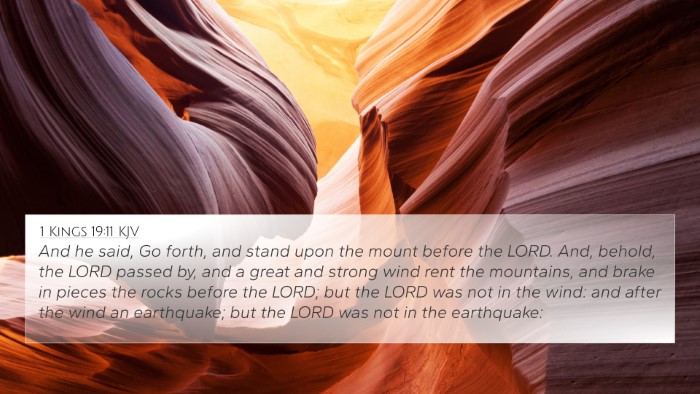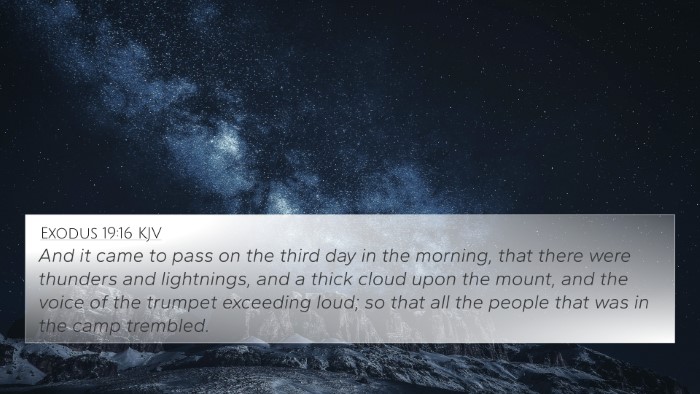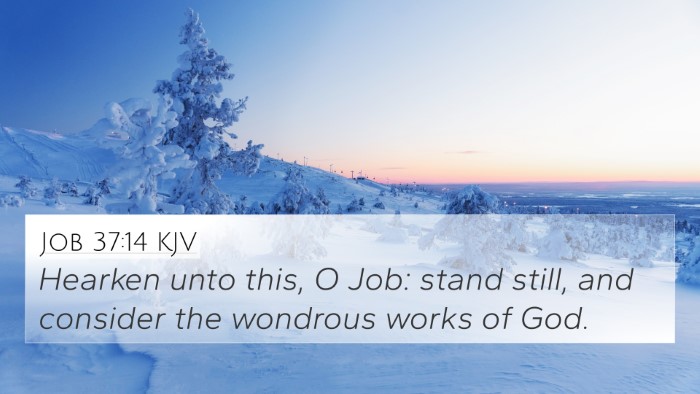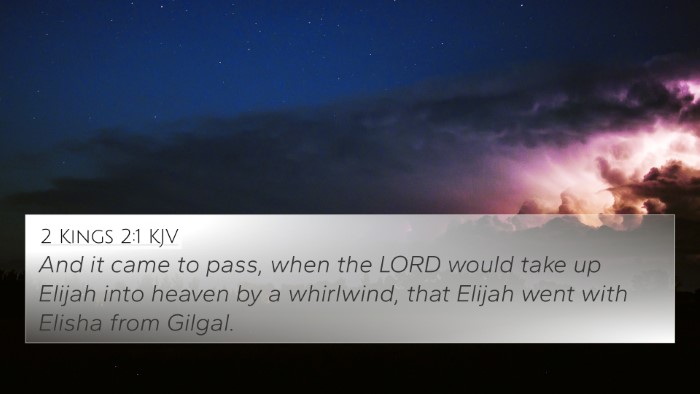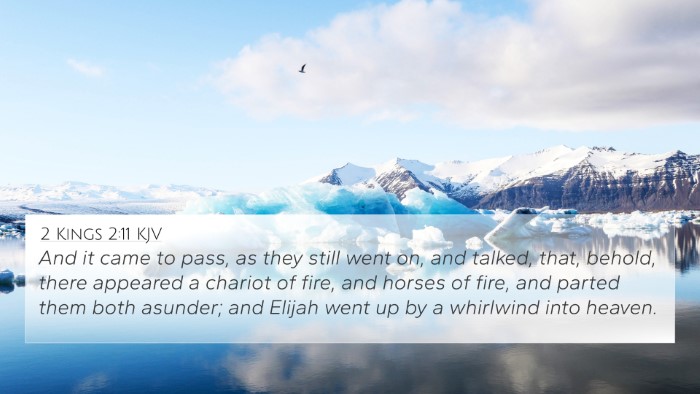Understanding Job 38:1
Job 38:1 states: "Then the LORD answered Job out of the whirlwind, and said," This verse marks a significant moment in the Book of Job, where God finally responds to Job's suffering, questions, and the dialogues that have ensued with his friends.
Contextual Overview
The Book of Job explores profound themes of suffering, divine justice, and human faith. For approximately thirty-seven chapters, Job, a righteous man, has been silent while his friends debate the reasons for his suffering. They assert that suffering is a result of sin, urging Job to repent, but Job maintains his innocence. Finally, God intervenes in a dramatic fashion—with a whirlwind, indicating His power and majesty.
Commentary Insights
- Matthew Henry: Henry notes that God's response from the whirlwind signifies His authority and the seriousness of Job's plight. It signifies that God is not indifferent to human suffering, but rather engages with it in His own timing and manner.
- Albert Barnes: Barnes emphasizes that the manner of God's reply—emerging from a whirlwind—implies that God’s revelations often come in ways that demonstrate His infinite wisdom. The whirlwind can symbolize the storms of life, from which God’s voice emerges to bring clarity.
- Adam Clarke: Clarke points out that the whirlwind represents the chaos of the world, and from this chaos, God speaks order. He suggests that God challenges Job’s understanding of the universe—reminding him of the limits of human reasoning compared to divine wisdom.
Key Themes and Messages
This verse and the chapters that follow unpack several critical themes:
- The sovereignty of God: God questions Job, highlighting His absolute authority over creation.
- Human limitation: The dialogue illustrates human limitations when attempting to understand divine purposes, especially in suffering.
- Faith amid suffering: God's response invites readers to maintain faith despite not having all answers.
Bible Cross-References
Job 38:1 relates to several other verses that emphasize God's power and the theme of divine wisdom in the midst of human suffering:
- Psalm 46:1: "God is our refuge and strength, a very present help in trouble."
- Isaiah 40:12: "Who has measured the waters in the hollow of his hand and marked off the heavens with a span?"
- Proverbs 3:5: "Trust in the LORD with all your heart and lean not on your own understanding."
- Job 9:12: "If he takes away, who can hinder him? Who can say to him, 'What are you doing?'"
- Ecclesiastes 3:11: "He has made everything beautiful in its time."
- Romans 11:33: "Oh, the depth of the riches of the wisdom and knowledge of God! How unsearchable his judgments, and his paths beyond tracing out!"
- James 1:2-4: "Consider it pure joy, my brothers and sisters, whenever you face trials of many kinds, because you know that the testing of your faith produces perseverance."
- Micah 6:8: "He has shown you, O mortal, what is good. And what does the LORD require of you? To act justly and to love mercy and to walk humbly with your God."
- Habakkuk 1:5: "Look at the nations and watch—and be utterly amazed. For I am going to do something in your days that you would not believe, even if you were told."
- John 16:33: "In this world, you will have trouble. But take heart! I have overcome the world."
Conclusion
Job 38:1 serves as a powerful reminder of God's majesty and man's position amidst divine sovereignty. For those studying the connections between Bible verses, this passage is pivotal. It opens up avenues for cross-referencing between the Old and New Testaments, revealing a cohesive narrative about human suffering and divine purpose. Engaging with Job's story alongside other scriptures enhances understanding of God's character and His dealings with humanity.
Tools for Bible Cross-Referencing
For those looking to delve deeper into cross-referencing biblical texts, consider the following:
- Bible Concordance: A helpful resource for locating verses related to particular words or phrases.
- Bible Cross-Reference Guide: Guides that point out connections between verses and themes.
- Cross-reference Bible Study: A method where one compares scripture with scripture to gain deeper insights.
- Bible Reference Resources: Various tools and online platforms for exploring thematic connections.
Further Study
To enhance your understanding and to identify further connections between scripture, consider methods such as:
- Identifying connections between the Old and New Testament
- Comparative study of Pauline epistles
- Cross-referencing Psalms with New Testament teachings
These methods will assist in interpreting biblical themes and understanding the complexity of scripture, encouraging a fruitful study experience.




